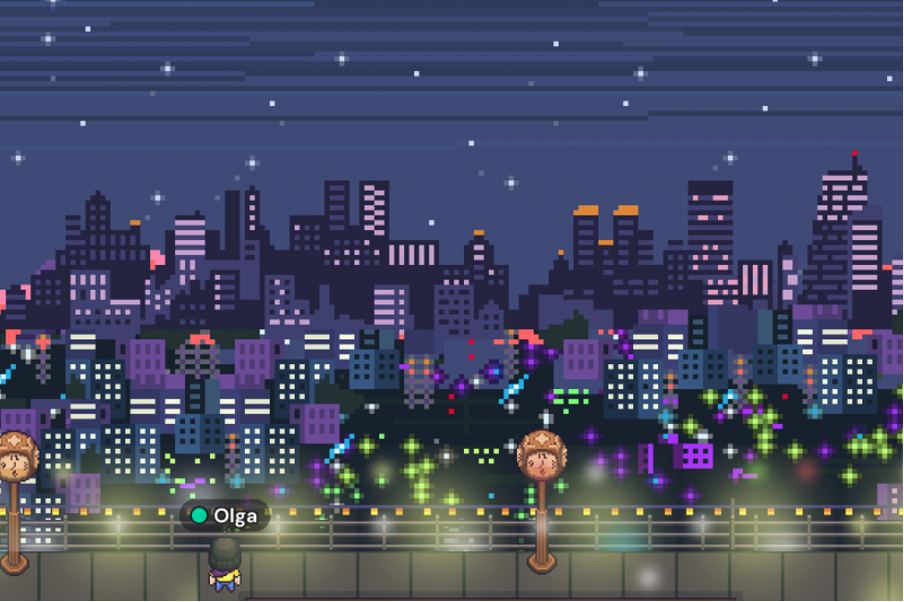Seminar Blogs
The Highest Point of Knowledge: Quentin Tarantino and the Poetics of Interdisciplinary Translation – Olga Efremova

The fifth session of the Transmission in Motion 2021-22 seminar series took place in an unusual setting: a Gather virtual town meeting set up to introduce the participants to an alternative “discursive space of connective and integrative dialogue” (Utrecht University 2022). Departing from the premise that “students with solid training in inter- and transdisciplinary programmes, tracks, or minors emerge as ‘integration experts’ (Utrecht University 2022), the session’s multidisciplinary team used virtual breakout rooms to generate ‘productive misunderstandings’” (Seminar slides). The concept was introduced by a rephrased title of the song by Santa Esmeralda: “Oh Lord, don’t let me be understood”, that is known to many from the soundtrack to Quentin Tarantino’s film Kill Bill.
The reason I want to use this line as a focal point for this blog entry is to illustrate how it exemplifies the integration expertise required to become transdisciplinary “bridge-builders between different academic communities, science, and society” (Utrecht University 2022). The line “don’t let me be [mis]understood” was used as an invitation to consider Glissant’s concept of “right to opacity” introduced in his Poetics of Relation (1990), where he argues in favor of opacity as an opposite of transparency: the over explanation and overexposure requested by the Western school of thought (189-190), while it is the opacity that drives every community (191). Glissant speaks of poetics as “the highest point of knowledge” (140) which puts the notions of “poetic justice” and “poetic violence” in a particular perspective that in my opinion comes out the strongest in Quentin Tarantino films.
Film and Media scholar Sasha Voiković (2011) speaks of Tarantino’s “transcultural imaginary” that is well positioned within the process of cinematic storytelling described by Mieke Bal as “narrativity” (87).Translating the visual language of cult film for academia is in my view impossible without appreciating the extent of the emotional reach of cult film works in academic community on personal, private rather than professional level. While this affinity is not what a scholar would necessarily put on their LinkedIn profile, it invariably comes across through opaque but recognizable signs of shared communal identity. Choosing Kill Bill either in a form of a poetic allusion, or more explicitly as an object of one’s academic research is an act of bridging the interdisciplinary. It can also be seen as a creative act of “animating the imagined transparency of relation” (Glissant 1990, 192).
The Gather session ended with “virtual drinks” in a rooftop bar. My avatar took the liberty to break away from the intensity of the small talk and wandered to the edge of the platform to adore the cityscape, just as I would have done in a real life in a similar setting. As she stood there, contemplating on “the highest point of knowledge”, I reflected on how being [mis]understood could be an essential human need, a foundation of relation.
“Oh Lord,” sighed Olga the Avatar. “Please don’t let me be [mis]understood.”
References
Glissant, Édouard. 1990. Poetics of Relation. Ann Arbor: The University of Michgan Press.
Voiković, Sasha. 2011. “Critical Narratology and the Structuring of Subjectivity in Filmic Texts. In Eighty-Eight Mieke Bal PhDs 1983-2011, edited by Esther Peeren, Murat Aydemir. Amasterdam: ASCA Press.
Utrecht University. 2022. “Translational Skills and Interdisciplinary Education” – SILT (Utrecht University) Transmission in Motion. Accessed April 5, 2022. https://transmissioninmotion.sites.uu.nl/translational-skills-and-interdisciplinary-education-silt-uu.

